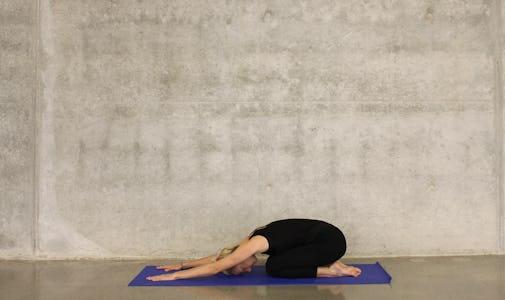Getting Started
Waitlist FAQs
Familiarize yourself with the process of moving into a senior living community so you can manage your expectations, timeline, and finances accordingly.
Getting Started
Choosing the Right Apartment
Start thinking about which items are must-haves on your apartment wishlist and which others you could quite happily live without in a senior living community.
Getting Started
Requesting a Community Tour
If you are considering moving into a senior living community in your area, an in-person tour will give you a great insight into the look and feel of a place.
Location
Top Reasons to Retire In and Around Gaithersburg, Maryland
Out of all the things that may be on your retirement checklist, Gaithersburg in Maryland is bound to tick several boxes as a great option to consider.
Location
Retiring to Charleston, South Carolina is a Golfer's Dream
If you are an avid golfer, then Charleston, SC and its surrounding neighborhoods should be high on your list of senior living communities to consider.
Location
The Top 5 Beaches to Retire to near Charleston, South Carolina
If you're looking to retire to a more comfortable climate, you may consider one of the many stunning beachside locations near Charleston, South Carolina.
Location
The Best Neighborhoods to Retire in Charleston, South Carolina
Surrounded by coastal scenery, calming ocean breezes and beautiful weather year-round, Charleston, SC checks all the boxes for a wholesome retirement.
Wellness
How Storytelling Helps Us Live Longer
Family storytelling is based on reminiscence therapy which has real health benefits for older adults, including those with dementia or Alzheimer’s.
Wellness
Decluttering Tips – Why We Cannot Let Go of Stuff
Nothing clogs our brains more than clutter. These 5 tips can help you clear the unnecessary clutter and incentivize you to live fully with less.
Wellness
What is My Real Age? The Difference Between Chronological and Biological Age
With the right diet and exercise most older adults have the potential to become super-centenarians living beyond age 120. Could you live that long?
Wellness
Brain Workouts To Keep Older Adults Sharp and Fit
As we age, our fitness routines start to focus as much on the neck up as the neck down. These brain workouts can help you stay sharp and fit for years to come.
Continuing Care Retirement Communities
What Makes Retirement Communities? Activities, Of Course!
Activities can define a retirement community. Learn more about the different activities these communities can provide.
Getting Started
What Is Retirement Downsizing?
Is your house feeling too big, cluttered, or expensive to maintain? Learn more about downsizing when you retire.
Getting Started
Top Amenities Seniors Should Look For in Retirement Communities
We go over some of the most important amenities in retirement communities to suit your diverse needs.
Continuing Care Retirement Communities
What Is A Continuing Care Retirement Community?
Continuing Care Retirement Communities (also known as CCRCs and Life Plan Communities) are retirement communities that provide a continuum of services and care for seniors as they age, ranging from independent living, assisted living, memory care, and skilled nursing care. Typically, CCRCs are designed to be like large campuses or resorts with multiple buildings and amenities. Independent living, assisted living, memory care, and skilled nursing are often separated into dedicated sections of the campus or building. In the US, there are over 2000 such communities with as many as 100 more by the end of 2019.
Getting Started
Forget Aging Gracefully — Age Successfully!
The MacArthur Foundation’s landmark ten-year study in 1998 showed that 70% of how we physically age, and 50% of how we mentally age are determined by the lifestyle choices that we make. It was this study that sought to break the stereotypes that equate aging to sickness, senility, slowness, weakness, and that longevity is predetermined by genetics.
Continuing Care Retirement Communities
What to Consider When Evaluating a CCRC
Choosing to sign a Life Care contract and move into a Continuing Care Retirement Community is an enormous decision that will impact the quality and security of your life in retirement. Since it is generally something people only ever do once in their lives, most know nothing about the evaluation process at its outset. To help you navigate your decision-making and give you greater confidence you have made the right decision in the end, we have created a list of questions to consider asking.
Types of Communities
Senior Living Options Today
Long gone are the days when senior living conjured up images of living alone at home or moving into nursing home facilities that felt more like hospitals for the old.
Since the late 1980s, the concept of senior housing has evolved from medical care for the elderly to one of providing services to allow the aging to live with more independence. And in the last two decades, that concept has further evolved to accommodate lifestyle and quality of life choices, focusing not just on living, but living well.
Continuing Care Retirement Communities
Understanding the Costs of CCRCs
While CCRCs offer the most comprehensive retirement option for seniors, they have the most complicated contracts and are the most expensive.
Here are the two primary cost components to consider:
Entrance fee also known as a “buy-in”. This is a one-time entry fee based on the size and location of the residence, as well as the type of residency care contract you choose. (More on that later.) The fee can range anywhere from $50K to even over $1M. The fee will be used to cover the costs of your growing care needs as well as providing funds for the community to operate.
Getting Started
What is “Aging in Place”?
“Aging in place” is a term used to describe a person’s ability to remain in their home or community of choice for as long as possible, even as their needs for assistance and health care grow and change with age.
According to a recent AARP survey of people aged 65 and over, about 90% of seniors want to age in place.



















